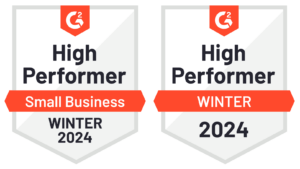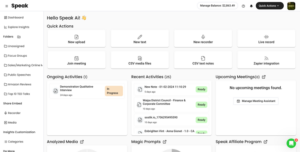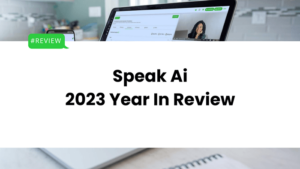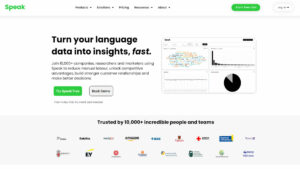
What's New In Speak - April 2024
Interested in What's New In Speak February 2024? Check out this post for all the new updates available for you in Speak today!
It can be difficult to determine which type of research to utilize when gathering data and insights. One-on-one interviews and focus groups both have their strengths, but does one stand out above the other? To help you decide, let’s break down the pros and cons of each method.
One-on-one interviews are a fantastic way to gain in-depth information from individual participants. This method typically involves an interviewer asking questions directly to the participant either face-to-face or over the phone.
The advantage of this type of research is that it allows for more personalization in terms of probing deeper into topics if needed as well as allowing for clarification if there is any confusion regarding questions or responses. Additionally, this method allows researchers to focus on specific areas such as background, demographics, opinions, and behaviors while also giving more control over how much time is spent with each participant depending on how much detail the researcher wants to be gathered from them.
The key drawback however can be the difficulty of finding willing participants who are available at a specified time due to busy schedules or lack of interest in participating in research studies. This can lead to low response rates that impact sample size accuracy resulting in data bias issues.
Also having only one person responding increases the chances that their opinion may not represent what other people think due to self-selection bias issues when looking at results across different segments such as age groupings, gender or other factors.
Focus groups involve small groups (usually 4 -12) discussing certain topics among themselves with a researcher present directing conversation through open-ended prompts about specific areas related directly back towards previously determined objectives for the study.
These types of sessions allow participants who would normally not speak up during an individual interview setting a chance to voice their opinion amongst peers while also creating an environment conducive towards creative thinking where ideas can bounce off one another resulting in sparking new insights.
This usually leads to generating higher quality data than what could have been generated through individual interviews alone since it's possible more perspectives could be brought into play during discussions compared to single respondent interactions. Furthermore, panelists tend to interact better with each other than they do with researchers making it easier to get honest opinions without feeling any pressure leading again higher-quality results.
On the downside of focus groups, focus group costs tend significantly higher than individual interviews mainly because multiple people need to be paid per session plus staff needed to set up, moderate, record, and more.
Also, sometimes conversations do not go as planned leaving gaps in the information desired. This makes it hard to validate findings since no direct follow-up questions are asked to clarify confusion like the case with 1:1 sessions.
Additionally, it's hard to measure differences between individuals within a discussion since everyone speaks the same language leading to potential false conclusions being made based upon biased responses.
So when considering one-on-one interviews vs focus groups it depends on the budget constraints and what kind of data is required to generate report findings upon the completion of the study.
For example, if need a deep understanding of behavior from individuals then it is probably best to use the one-on-one interview approach. However, if looking to get creative ideas to spark new insights then we can recommend using the focus group approach. Ultimately, the decision should come down to cost versus benefit analysis where risks associated with the wrong choice must be weighed against the value and expected return investments.
If unsure which is the best option, please feel encouraged to connect with our team here at Speak Ai to help you figure out the optimal solution given your goals and objectives. Even if we can just point you in the right direction, we love helping make sure you can execute successfully and achieve your desired outcome.
Thank you for reading this article!
Get a 7-day fully-featured trial.


Interested in What's New In Speak February 2024? Check out this post for all the new updates available for you in Speak today!

Interested in What's New In Speak February 2024? Check out this post for all the new updates available for you in Speak today!

Interested in What's New In Speak February 2024? Check out this post for all the new updates available for you in Speak today!

Thank you for continuing to be part of this journey - it means the world to us. Below is a summary of our 2023 at

Interested in The Best Executive Research Firms? Check out the dedicated article the Speak Ai team put together on The Best Executive Research Firms to learn more.

Interested in The Best Consumer Research Firms? Check out the dedicated article the Speak Ai team put together on The Best Consumer Research Firms to learn more.

Powered by Speak Ai Inc. Made in Canada with
Use Speak's powerful AI to transcribe, analyze, automate and produce incredible insights for you and your team.